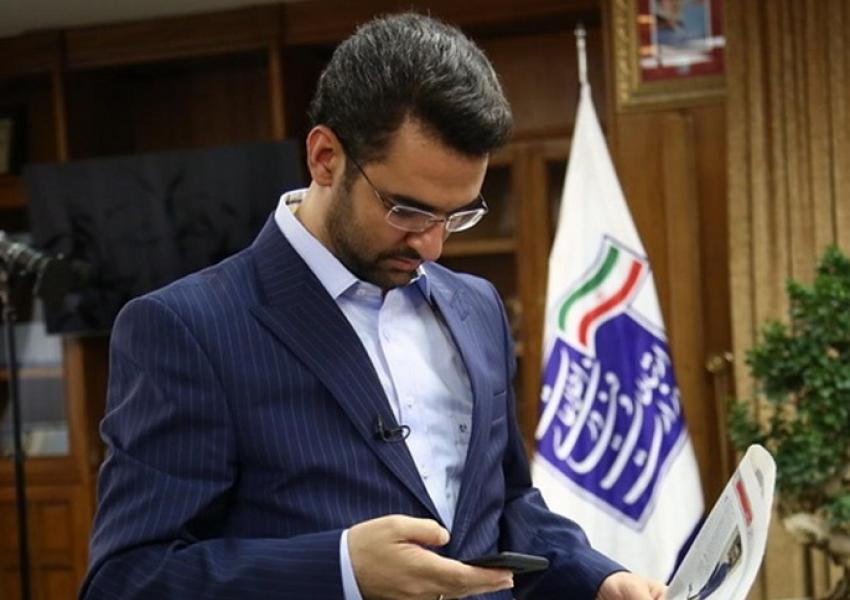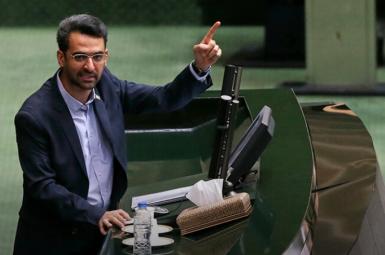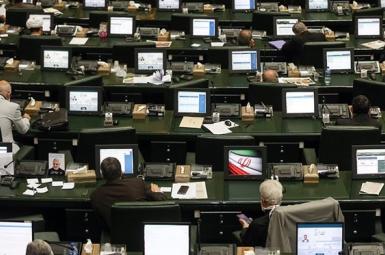
Iran Judiciary Prosecutes Communications Minister Over Internet Access
Iran’s Prosecutor-General Mohammad-Jafar Montazeri has sued Mohammad-Javad Azari-Jahromi, Communications and Information Technology Minister, for refusing to implement judicial orders and decisions of the Cyberspace Supreme Council (CSC) aimed at blocking access to social media platforms.
The minister is accused of refusing judicial orders to block access to Instagram, refusing to limit the international bandwidth, and not supporting homegrown messaging apps, Borna News Agency reported on Wednesday [January 20].
He is also charged with not implementing CSC decisions on blocking access to virtual private networks (VPNs) and internet censorship circumvention software, which allow users to sidestep controls.
Azari-Jahromi is accused of ignoring regulations set by the CSC, which was formed in 2012 by decree of Supreme Leader Ali Khamenei to “prevent the harms of the internet” and to bolster Iran’s cyber defense. Council members are appointed by Khamenei and include the president, parliament speaker, chief justice, several ministers, commander-in-chief of the Revolutionary Guards (IRGC), and Iran’s national police chief.
Both the council and Azari-Jahromi have been sanctioned by the United States Treasury Department, the council in January 12, 2018 and the minister in November 2019. The council was named on March 12, 2020 in the top 20 worst digital predators by Reporters Without Borders (RSF) on the occasion of the World Day Against Cyber-Censorship. In its report, RSF called the council the architect of the “halal internet,” meaning a national Iranian internet cut off from the rest of the world through a firewall.
Azari-Jahromi was also sued in April by the state-controlled broadcaster (IRIB) for disclosing that the IRIB was withholding 700 and 800 MHz frequencies required for developing the fifth generation of the mobile internet - despite not needing these frequencies for its own operations - and for increasing network capacity and speed.
Iran blocks news websites and platforms, and bars apps such as Telegram, Signal, WhatsApp, Facebook and Twitter. In the latest instance, on January 15 the internet filtering authority, Criminal Content Designation Taskforce, ordered Signal to be removed from Iranian app markets.
The only social media platform not blocked in Iran is Instagram, which Iranian Students Polling Agency (ISPA) in May 2018 said was used by 32 million Iranians. Instagram is a common tool in business and marketing.
Many hardliners strongly oppose free access to Instagram. “Instagram has become a slaughterhouse of [religious] beliefs of the [Iranian] youth,” lawmaker Musa Ghazanfarabadi, who has an Instagram account himself, said on June 21. Azari-Jahromi said on December 16 that “a certain [hardline] thinktank” was behind the extensive circulation of an Instagram video in which an older woman discussed sex with a teenager in order to pressure him to block Instagram.









